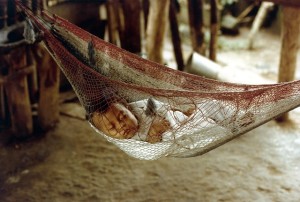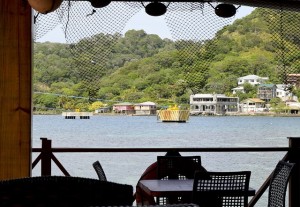 The official title of Honduras is Republic of Honduras. In Spanish it is known as República de Honduras. At one time it was known as British Honduras. Honduras has been the home to several very important Mesoamerican cultures and this includes the Mayans. This is a country and culture that was once conquered by Spain and thus the indigenous population and the Spanish eventually mixed. Geographically, it is a place filled with natural resources such as sugar cane, various tropical fruits, coffee, and many minerals.
The official title of Honduras is Republic of Honduras. In Spanish it is known as República de Honduras. At one time it was known as British Honduras. Honduras has been the home to several very important Mesoamerican cultures and this includes the Mayans. This is a country and culture that was once conquered by Spain and thus the indigenous population and the Spanish eventually mixed. Geographically, it is a place filled with natural resources such as sugar cane, various tropical fruits, coffee, and many minerals.
As a result of its rich heritage and political turmoil much poetry has emerged. This poetry details the struggles that this nation has undergone and is still experiencing today. For the Honduran’s, their classical influence came from the ancient Mayan civilizations. In the beginning, their poems were lyrical and filled with verses of nature and love.
The Songs of Dzitblanché translated by John Curl is a wonderful collection of Ancient Mayan Poetry by Ah Bahm. It is the only known written record of Mayan poetry and contains poems on subjects ranging from philosophy, to love, to ancient rituals and spiritual beliefs. It also contains personal reflections giving us a glimpse of the life of the Ancient Mayan.
In the late 19th as well as 20th century, popular Honduran poetry was written by Froylan Turcios together with the modernist poet Juan Ramon Molina. Molina was a poet using lyrical style and is known as a gifted metaphysical poet (1875-1909). He indulged in flowing prose and beautiful visions. Highly influenced by the Nicaraguan poet, Rubén Darío, Molina delved into topics ethereal in nature. His skill regarding those difficult concepts gained him a loyal following. Molina pondered concepts of life and death, love, and religion. A line from his poem Nocturnal Longing Molina contemplates the nature of evening–“I keep my eyes fixed–as the flee from sleep–upon the sinister sphinx of obscure infinity!”
Other poets such as Rigoberto Paredes, Roberto Sosa, Oscar Acosta, Alexis Ramirez, Jose Luis Quesada and Jose Adan Castelar are the poets who unwrapped new literature as well as generational perceptions in their work starting in the 1960s and 1970s and this style still continues today. Other major poets in modern day Honduran poetry include Cesar Indiano, Ruben Izaguirre and Rebeca Becerra. Cesar Indiano is also known for writing novels and short stories.
Robert Quesada is another author who is known as a brilliant and gifted writer with plenty of writing experience. Several of his books are popular in the Spanish community. Born in 1962, Quesada was raised in Honduras and was even an ambassador for Honduras. In May 2002, the writer simultaneously published (in Spanish and English) Never Through Miami. This book represents a lot of sarcasm regarding Latino immigration to the US. Quesada’s first book; The Deserter was written in 1985. Quesada also wrote Los Barcos.
 But of all the poets from this region, Roberto Sosa is considered the national poet of Honduras. His infamous quote, “Poetry is pain” from an interview with María Antonia Martínez de Fuentes revealed his soul.
But of all the poets from this region, Roberto Sosa is considered the national poet of Honduras. His infamous quote, “Poetry is pain” from an interview with María Antonia Martínez de Fuentes revealed his soul.
He discusses his best known works Caligrama (1959) and Un Mundo Para Todos Dividio (1971). Despite his efforts to raise awareness of the plight of the impoverished, he feels that it has only gotten worse. His poetry is full of lamentations for his fellow citizens living in poverty and violence and this greatly exemplifies the poetry of Honduras today. He also finds feminine imagery in poetry very interesting. He was born on April the 18, 1930 and died May the 23, 2011.
Sosa published his first work when he was 30 years of age. In 1968 Sosa published Los Pobres and by 1990 Sosa had already published six books (three of those were prose), and two anthologies. The Return of the River, The Common Grief and The Difficult Days are all now available in English translations.
Honduran poetry has been a way for the people to speak out against the political structures in any given time during their history. Much of the poetry has been written to adhere to rhyming patterns, providing vivid imagery of violence and social inequalities that have existed throughout this nation.
Today we have those poets such as Rigoberto Paredes who is one of Honduras’ contemporary poets. He shows the iniquity of poverty juxtaposed against the wealth in his ground breaking poem Elogia de la gordura translated as Ode to Obesity showing hunger in Honduras by illuminating obesity.
Many individuals may be of the opinion that writing poetry is an obscure profession; however, in Honduras it is highly regarded because these individuals shed light on the past and continuing political situation in Honduras (particularly those poets arising from the 1960s when there was an emergence of socially awareness). Hondurans tend to see poets as incorruptible truth tellers. This is very much considered a perilous and valuable occupation in a state deeply ingrained in political corruption.
Poetry in Honduras has played a critical part in shaping culture and society as it appears to change the way people think. It has literally transformed the manner in which Hondurans view their government as well as how they view the outside world. It is safe to say that poetry has stimulated Hondurans to want to change their country due to the many powerful words of personal and national political reflection.
With this onward push in poetry, modern day Honduran poets will continue to influence what is happening in the world around them including Spanish and Latino influences of magic realism and political awareness (common themes seen in this new generation of poets).




